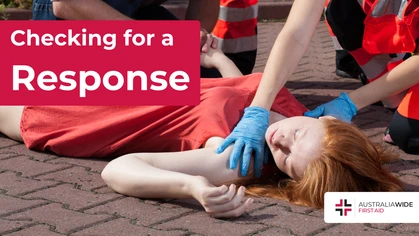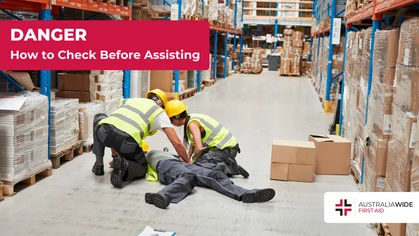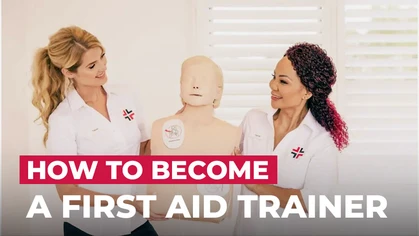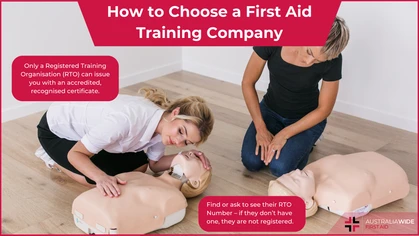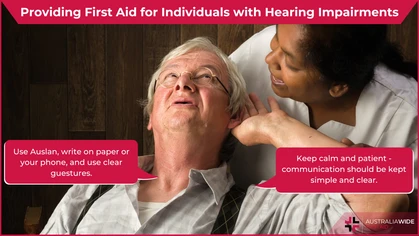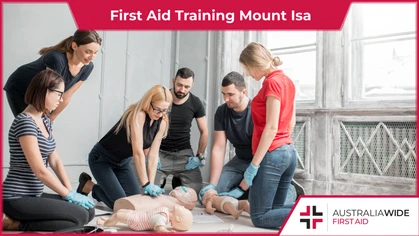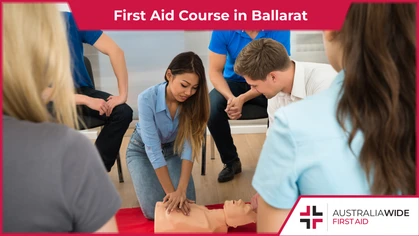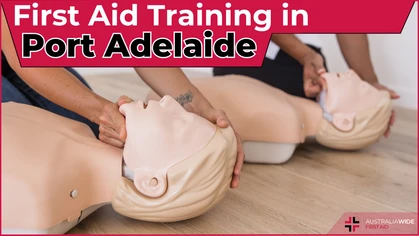Dehydration First Aid

First Aid Training
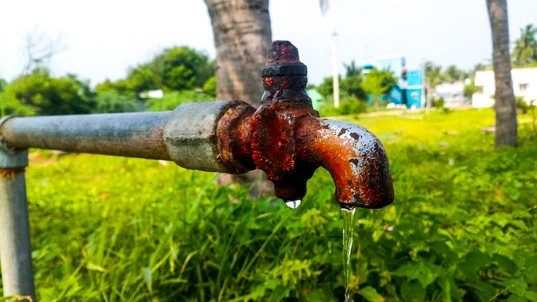
First aid treatment for dehydration is aimed at rehydration and restoring a balance of electrolytes in bodily fluids. Severe dehydration needs immediate medical treatment.
Dehydration leads to a loss of electrolytes in our bodily fluids. These electrolytes are critical to the body’s ability to control muscles, blood chemistry, and organ processes. First aid treatment for dehydration is aimed at rehydration and restoring a balance of electrolytes in bodily fluids. Severe dehydration needs immediate medical treatment.What is dehydration?
Dehydration is the result of losing or using more fluid than you take in. Without sufficient fluids, your dehydrated body will soon be unable to carry out normal functions. Dehydration can occur to anyone who fails to drink enough water. This is especially the case during hot weather, especially when engaging in vigorous activity. Dehydration can lead to serious complications, ranging in severity from heat cramps to heat exhaustion or potentially life-threatening heat stroke. The risk of heat-induced illness increases when working or exercising outside in hot, humid weather. We sweat more in hot weather and lose fluid — anywhere from 100 millilitres to several litres per day, depending on our activity levels and the temperature. In hot climates, people working or exercising lose the most fluid, sweating as much as 2.5 litres an hour. Losing fluid in this manner can easily lead to mild dehydration, causing headaches, irritability and diminished powers of concentration. Between 50–80 per cent of your lean body mass is water. Sweat evaporates from your skin and takes some of the heat with it. The more you sweat, the more evaporation, the more you are cooled off. Sweat is mainly salt and water. It will not evaporate effectively when the air is humid. Excessive sweating (hyperhidrosis), with no replenishment of fluids, will lead to increased body temperature, a need for more fluids, and dehydration, which can lead to more complications. The two age groups most vulnerable to the risk of dehydration are older adults and young children, for whom the condition is especially dangerous. Younger children are unable to get a drink for themselves or tell you when they're thirsty. The most common causes of dehydration in children include diarrhoea, vomiting, and fever. Older adults naturally have less water in their bodies and may also have conditions or take medications that increase the risks of dehydration. Even minor illnesses — infections affecting the lungs or bladder, for example — can lead to dehydration in older adults. As the body ages, its fluid reserves and the ability to conserve water are reduced. The sense of thirst also becomes less acute. These problems can be compounded by chronic illnesses, such as diabetes and dementia, and by the use of certain medications. Older adults may also have mobility problems preventing them from easily replenishing fluids themselves. Also at high risk of dehydration are people with chronic illnesses, such as uncontrolled or untreated diabetes. Kidney disease and medications that increase urination also add risk. Other dehydration causes:- When you're sick, even from a cold or sore throat, you could feel less likely to eat or drink and therefore be more susceptible to dehydration.
- Fever can lead to dehydration, the problem worsening if diarrhea and vomiting are also present.
- Acute diarrhea that comes on suddenly and violently can cause significant loss of water and electrolytes in a short time, especially if accompanied by vomiting.
- Increased urination, possibly due to undiagnosed or uncontrolled diabetes, can cause dehydration. Medications, such as diuretics and some blood pressure medicines, increase urination.
- Swimmers are at risk of dehydration as they sweat even when they’re immersed. Athletes out in the sun, like runners, cyclists, and football players, aren’t the only ones at risk. Bodybuilders also experience dehydration.
- Prolonged or repeated bouts of dehydration can lead to urinary tract infections, kidney stones, and even kidney failure.
- Seizures can result from dehydration when electrolytes, such as potassium and sodium, are out of balance. This can disrupt normal cell-to-cell electrical signals, causing involuntary muscle contractions and sometimes a loss of consciousness.
- One of the more serious, potentially life-threatening complications of dehydration is hypovolemic shock — low blood volume shock. This is when blood pressure and oxygen in the body drop because of low blood volume.
Diagnosing dehydration
A doctor would usually aim to rule out other conditions by reviewing the affected person’s medical history and checking symptoms, including vital signs, heart rate and blood pressure. Low blood pressure and rapid heart rate can indicate dehydration. A blood test can be done to check electrolyte levels, which could indicate fluid loss. The blood test can also check creatinine levels, a guide to kidney functioning and an indicator of the degree of dehydration. A sample of urine allows for urinalysis to check for the presence of bacteria and electrolyte loss. The colour of the urine can also indicate dehydration when combined with other symptoms. Colour alone, however, is not confirmation of dehydration.Looking to get you First Aid knowledge up to date?
We run certified First Aid courses throughout all major Acustralian citys. Find a location near you.
What are the symptoms of dehydration?
The symptoms and signs of dehydration can differ with age. Infant or young child:- Dry mouth & tongue
- No tears when crying
- No wet diapers for 3 hours
- Sunken eyes, cheeks
- Sunken soft spot on top of the skull
- Listless or irritable
- Extreme thirst
- Urination less frequent
- Urine dark-coloured
- Fatigue
- Dizziness
- Confusion
- Headache
- Diabetes
- Vomiting or diarrhoea
- Been in the sun too long (heat stroke)
- Drunk too much alcohol
- Sweated excessively while exercising
- A temperature of 38° C or higher
- Been taking diuretics

How to treat dehydration
Treatment for dehydration includes rehydrating, electrolyte replacement and, if needed, treating diarrhoea or vomiting. Drinking may not be possible if the person is vomiting or has severe diarrhoea. In this case, rehydration fluids would be given intravenously — usually a mix of water and electrolytes through a small IV tube inserted in a vein in the arm or hand. When the person is able to, drink water, as well as a rehydration drink containing electrolytes, would be recommended. Make your own rehydration solution using:- 1/2 teaspoon salt
- 6 teaspoons sugar
- 1 litre water

How long does dehydration last?
Mild cases of dehydration can usually be resolved by drinking a generous amount of water. When dehydration is mild to moderate, rehydrating and a little home care will return the person to a well-hydrated state in a matter of a few hours. If dehydration is severe, medical care should be sought. To rehydrate the body in severe cases, the doctor may need to administer fluid intravenously (IV). Adding a sports drink or electrolyte solution is advisable after intense physical activity, diarrhoea, or vomiting, to replace electrolytes.How to prevent dehydration
Preventing dehydration is generally successful when plenty of fluids and foods high in water content, such as fruits and vegetables, are consumed. Thirst is an adequate guide for most healthy people. The thirst control centre in our brains controls water intake. It stops us from feeling thirsty when we drink water. And it would feel like hard work to continue drinking if we were trying to take in too much water. Ideally, you should produce some urine every 3 to 4 hours, and ideally, it would be relatively pale in colour. Certain vitamin supplements and foods can change the colour of urine, but they won't affect how often you go. In hot weather, dress cool and try to avoid being out in direct heat for an extended period. Even if you’re not being physically active, drink the recommended amount of fluids. A good rule of thumb for your daily requirement of water is 35 millilitres of fluid per kilogram of bodyweight. If you plan to exercise or play sports, drink water beforehand. Replace your fluids at regular intervals during the workout and drink water or electrolyte solutions afterwards. Increase your fluid intake when you are ill, especially if you’ve been vomiting or had diarrhoea. Seek medical attention if you cannot keep down liquids.
Originally published at
https://www.australiawidefirstaid.com.au/resources/dehydration-first-aid
as part of the Australia Wide First Aid Articles Library
